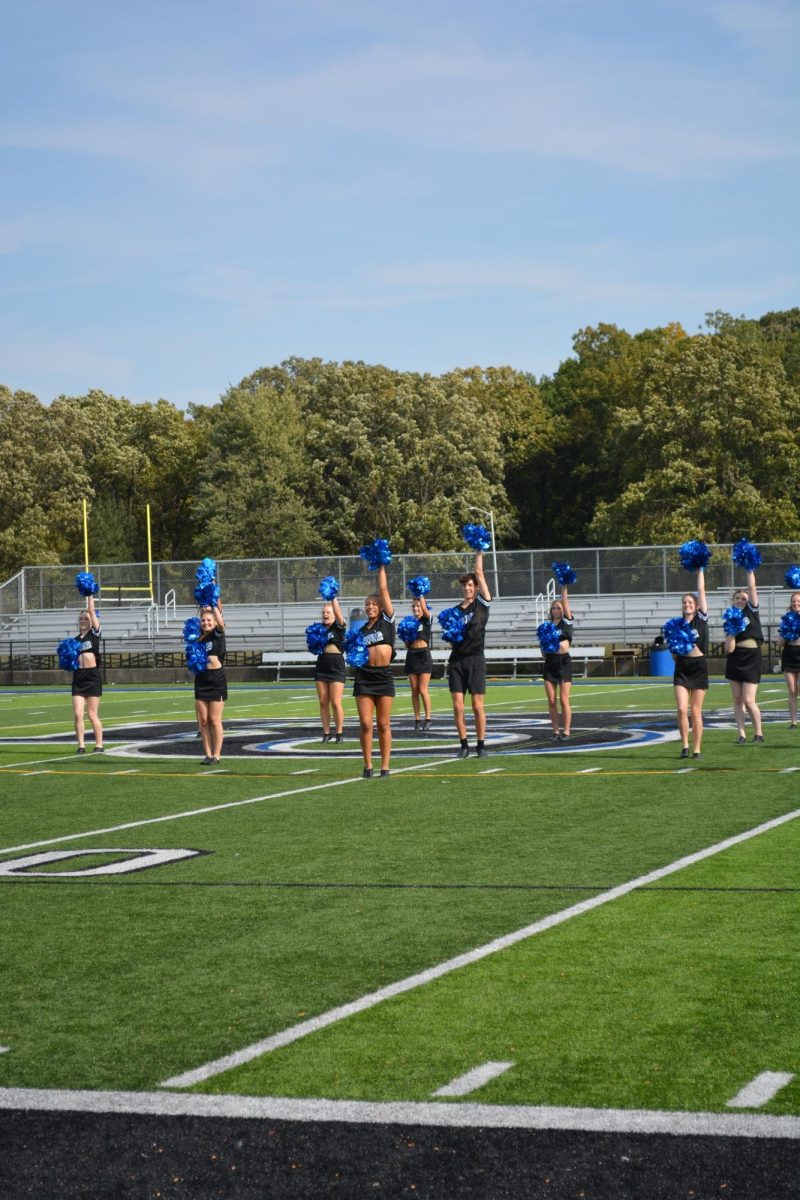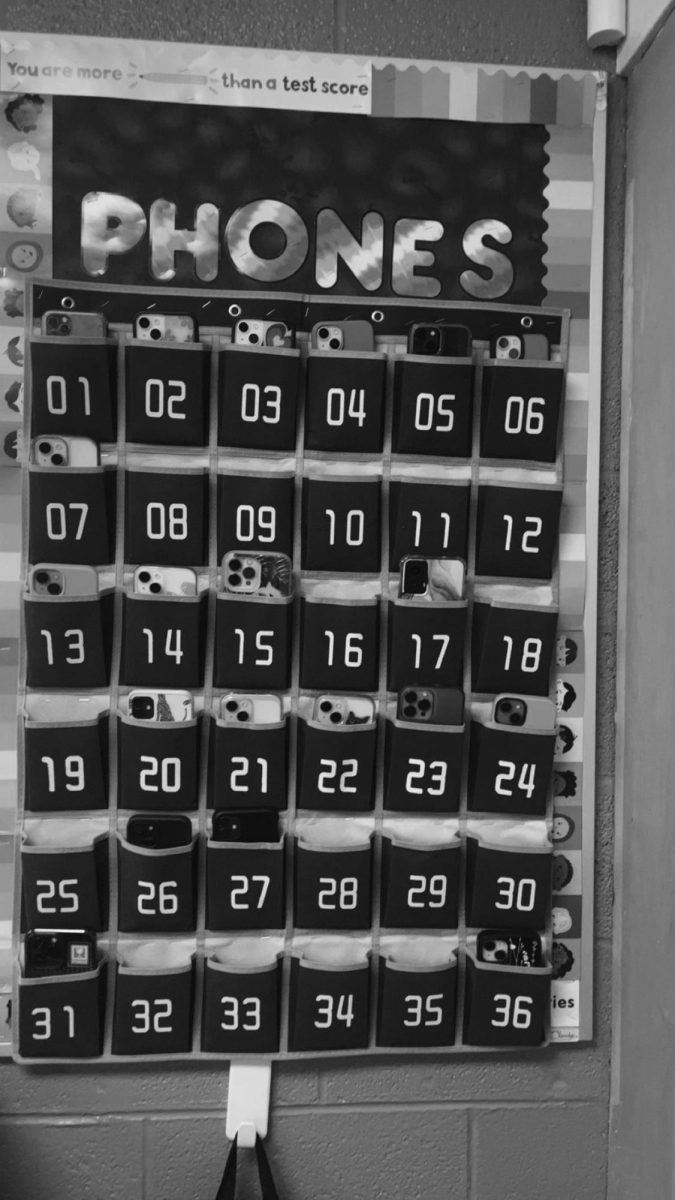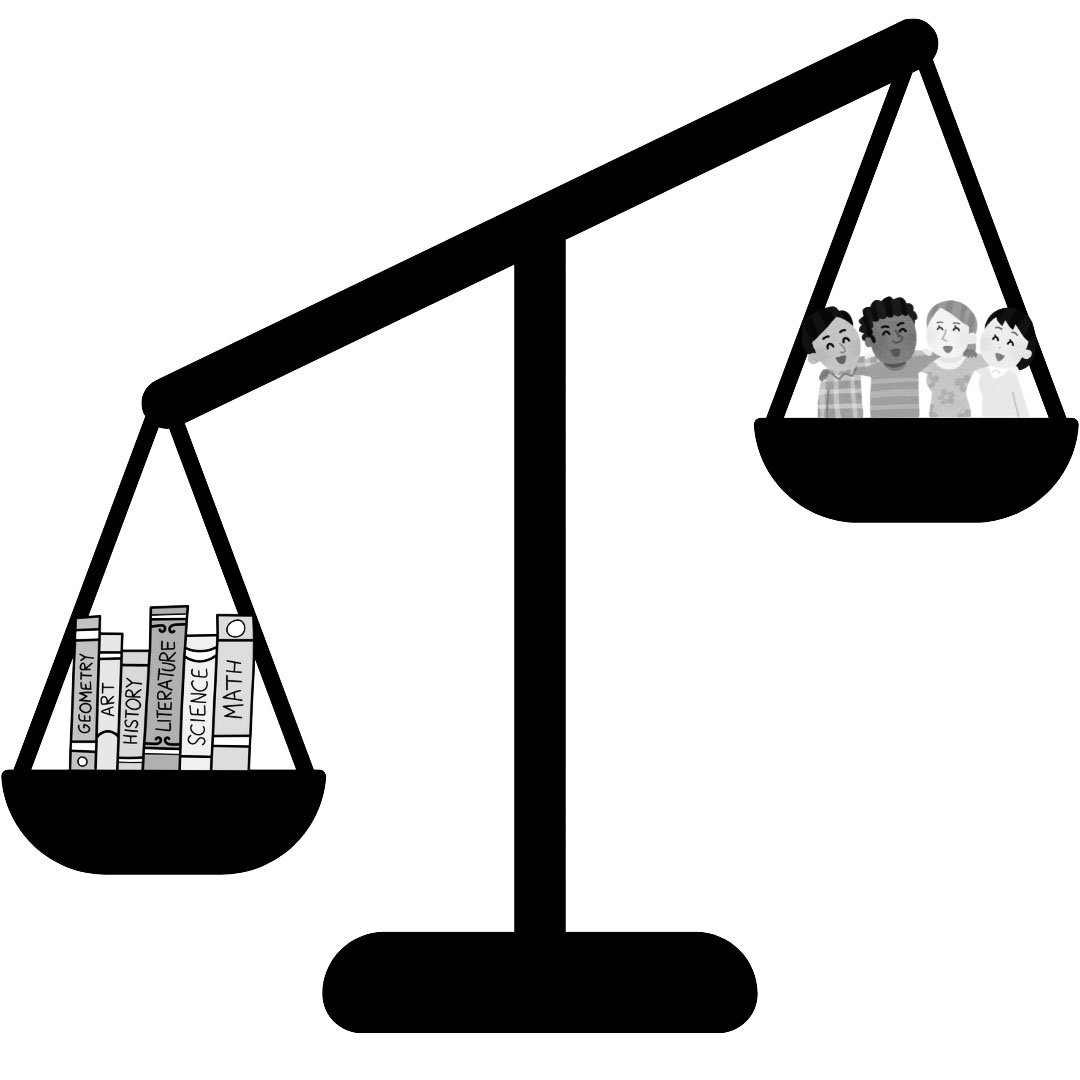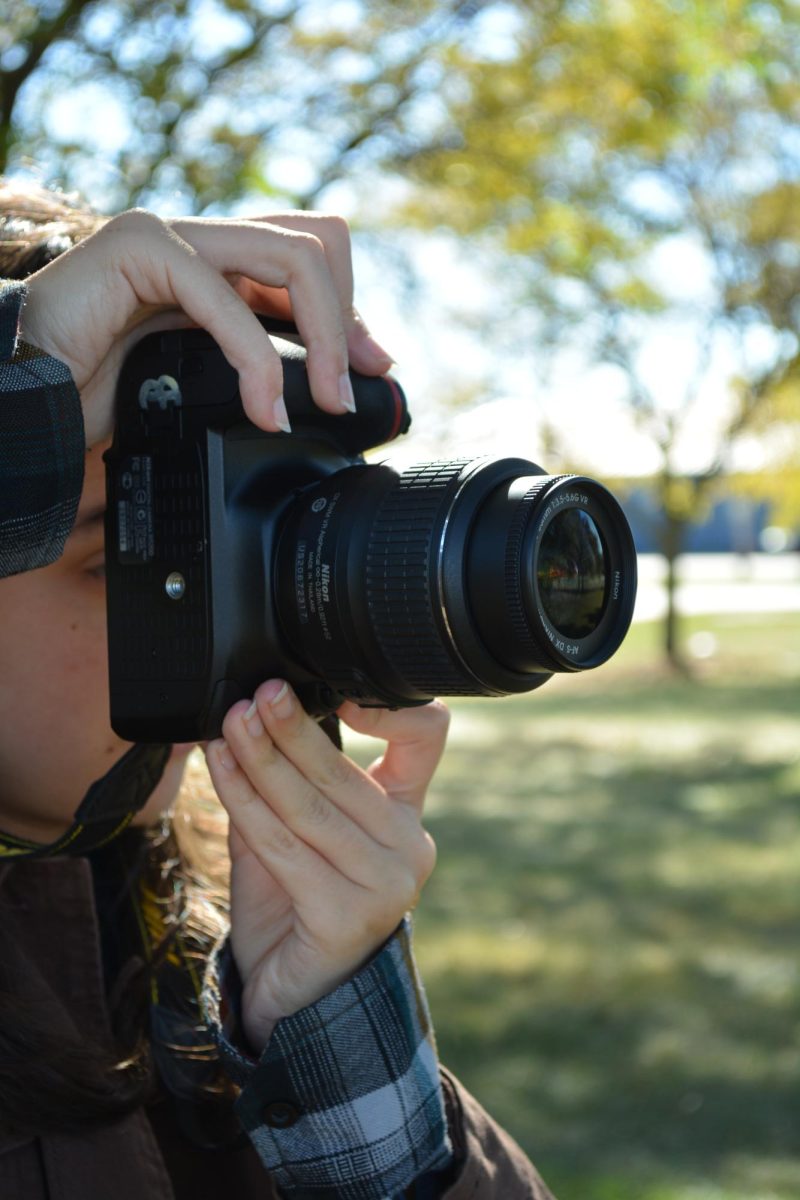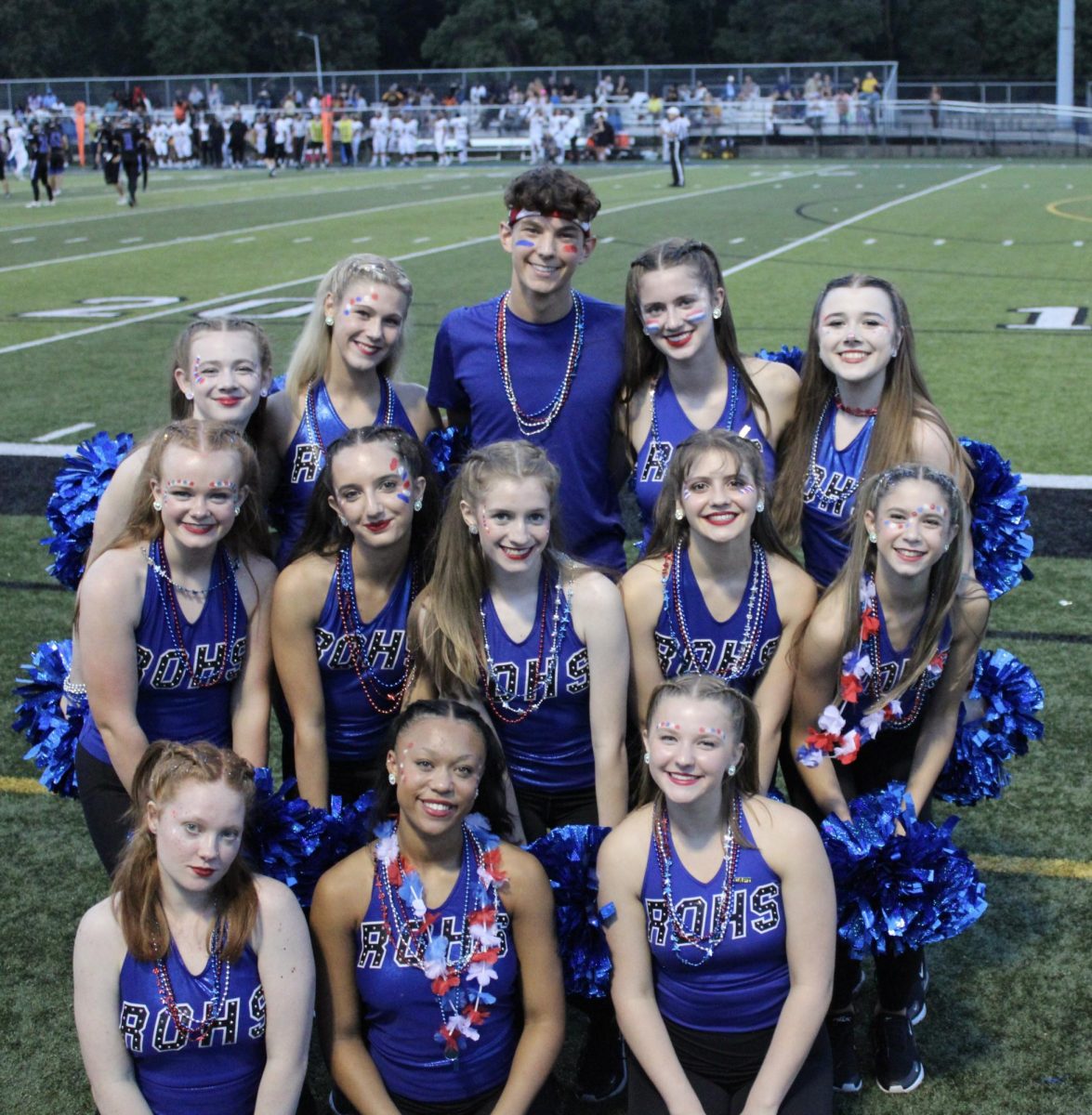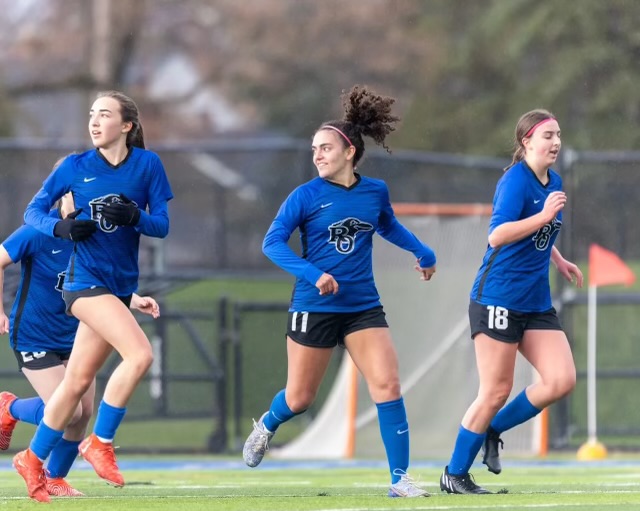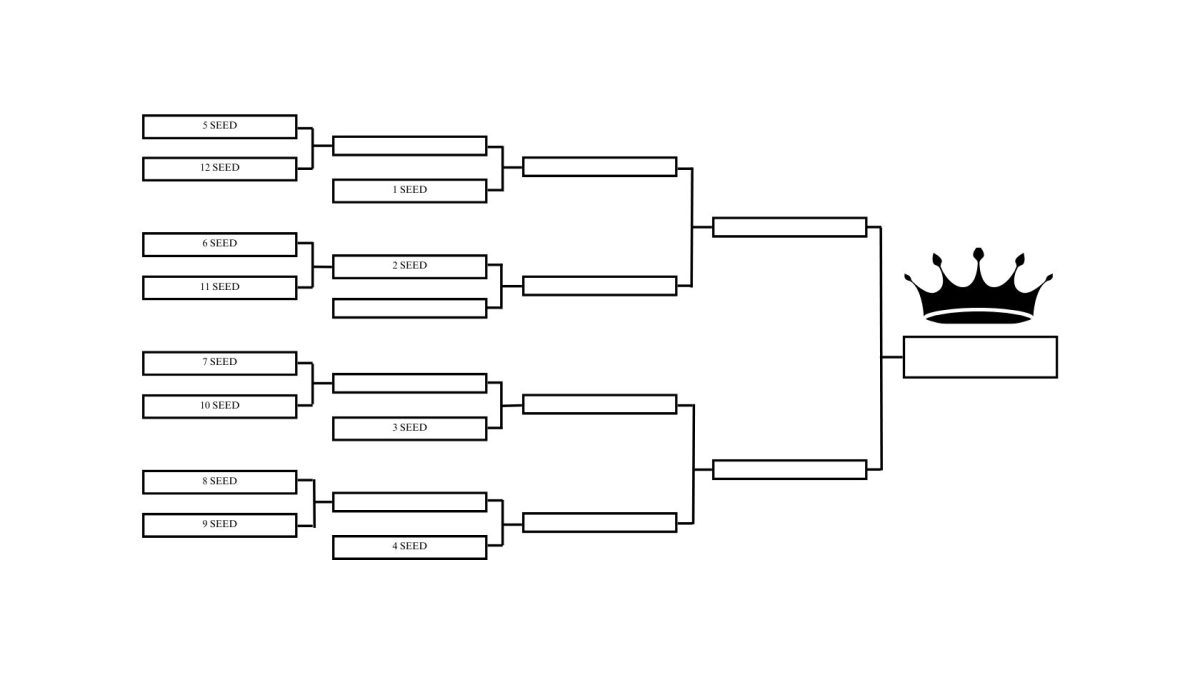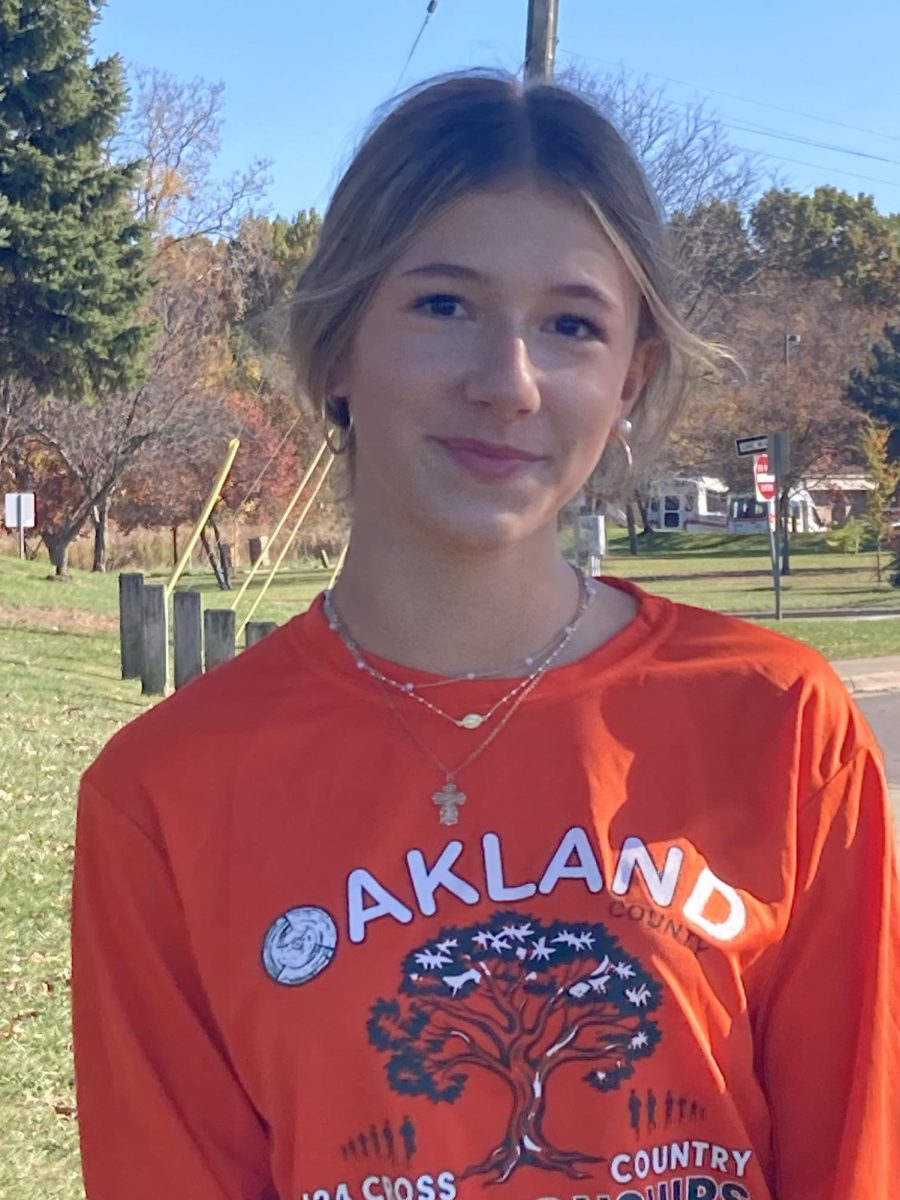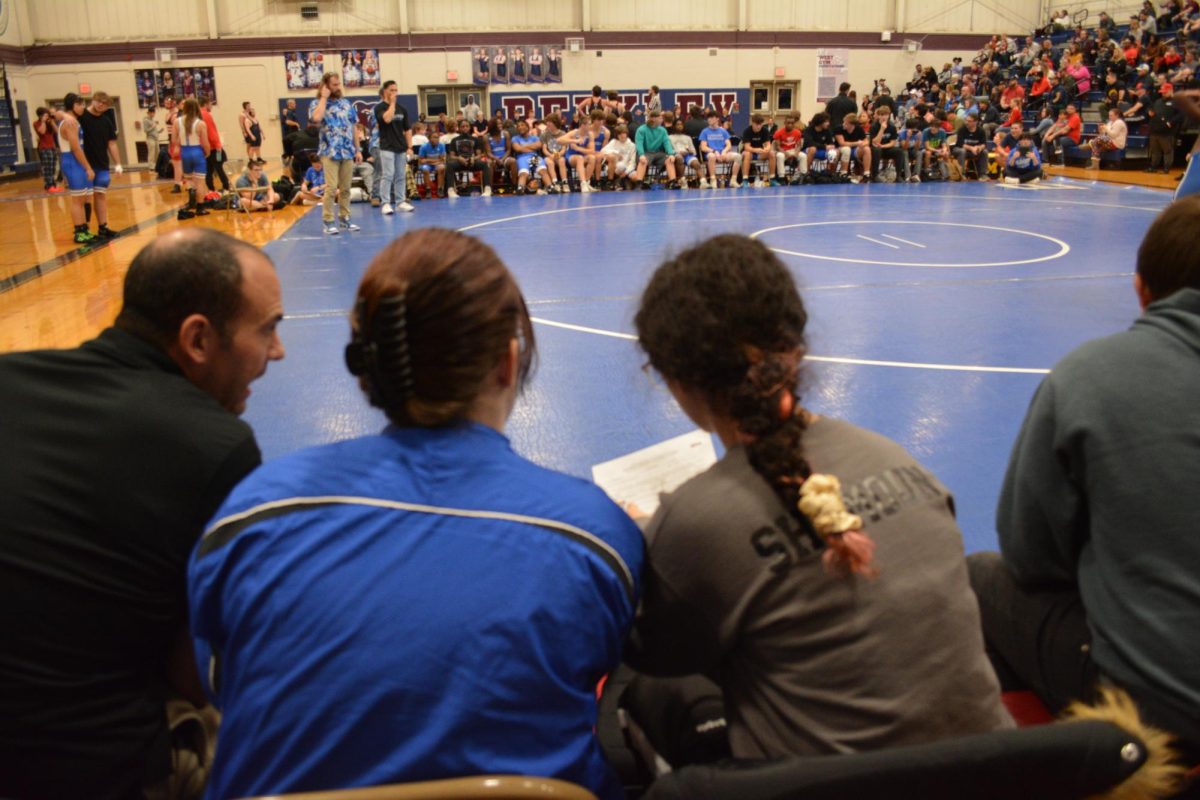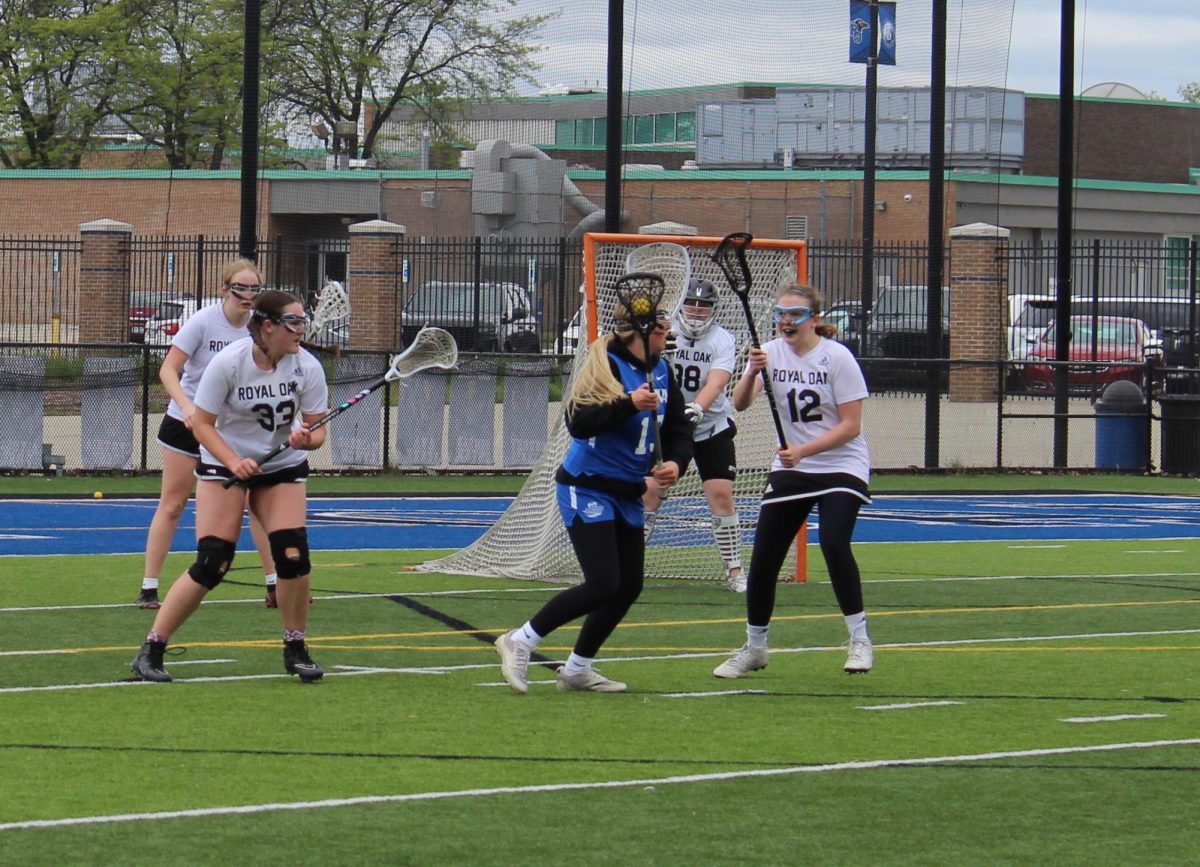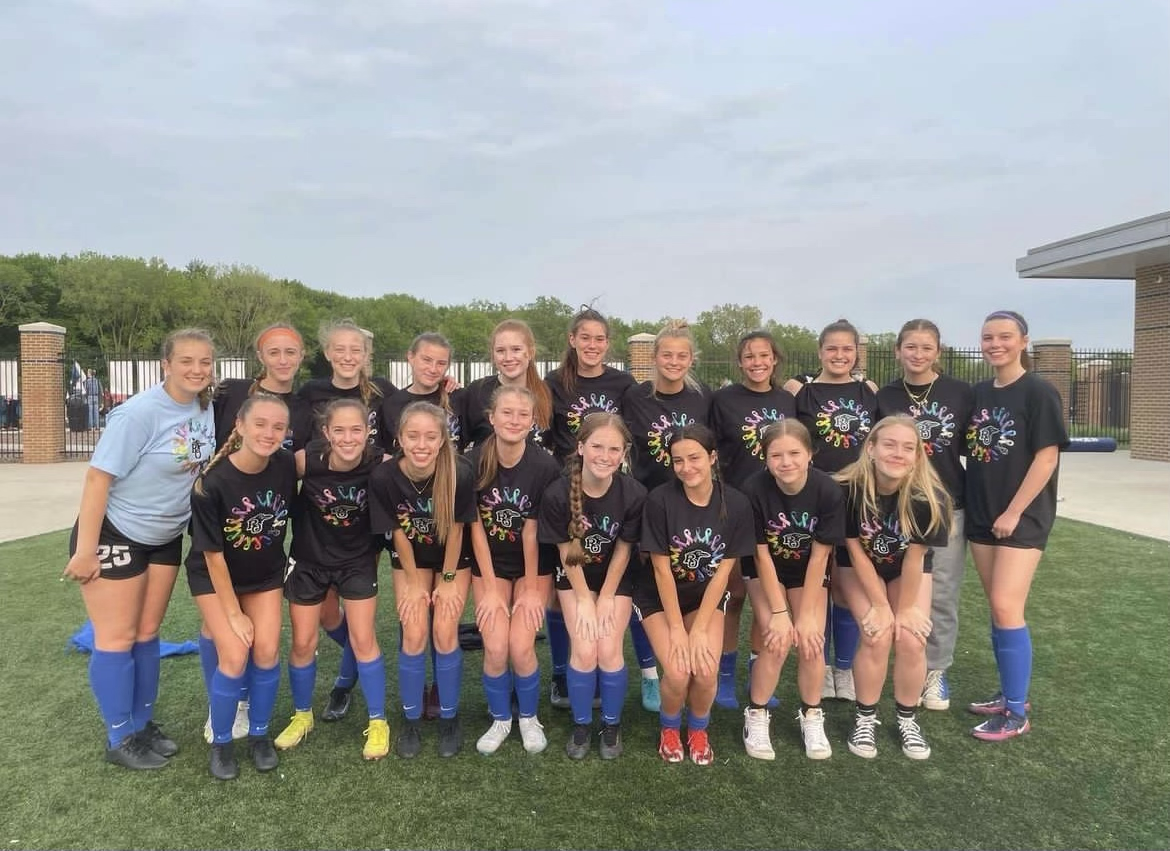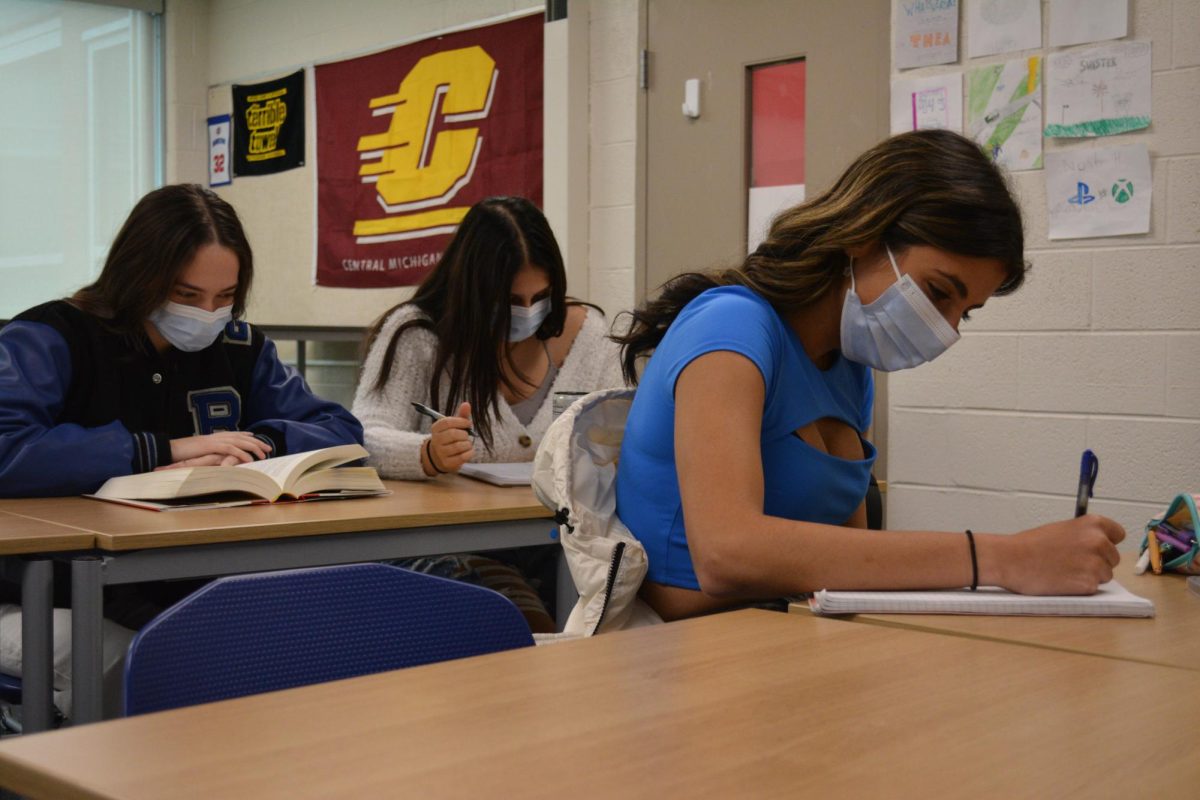In March 2020, schools shut down as a result of the rapid spread of COVID-19. This deeply affected students’ mental health, particularly teenagers in high school. As the transition out of the pandemic continues, ROHS students continue to see COVID-19’s effects on their daily lives.
The freshman of 2023 missed the end of their 5th-grade year and the majority of their 6th-grade year. This significantly affected their transition into high school, since most didn’t mentally transition into middle school. Freshman Kate Stoffers explained that time has stopped ever since COVID-19 started.
“It seems like I was just in 6th grade, but now I’m a freshman,” she said.
Large numbers of students missed out on a chunk of their lives, including the essential parts of their education, because it was not in person. Instead, they found themselves behind screens and in WebEx meetings, lacking the social foundations of meeting new people and other important experiences. Since the current freshmen were so young when the pandemic hit, many grew up spending the majority of their time on the Internet. The pandemic created a lack of access to socialization, which would have been acquired through their middle school experience and extracurricular activities. This was extremely damaging to how some teens see themselves because they only had access to their point of view, which fluctuates and can be inaccurate or unrealistic at that age.
Maxine Clament explained how being on the internet at such a young age later made it harder to socialize after quarantine protocols were lifted.
“During quarantine, the socialization was almost all online,” said Clament. “It was hard because you didn’t always know who you were talking to. Once we went back in person, it was harder to socialize, since before it had all been online.”
This year’s sophomores missed their 7th-grade year, and the transition into their teenage years. For most, the beginning of adolescence is a very emotional time, and the adverse effects that COVID-19 had on teens’ mental health didn’t help students’ state of well-being. Sophomore Sarah Menzo explained that she had struggles with body image. “Before the pandemic, people would tell me I wasn’t pretty enough to cheer. It didn’t bother me that much, but during quarantine, I had so much time alone,” she said.
The alone time during the pandemic provided people with time to re-evaluate their self-image, but unfortunately, many returned to school with a weakened sense of self. Sophomore Lydia Zaharevia was living in Canada in 2020 but visited the United States for spring break when COVID-19 shut down the borders. Zaharevia said she was typically a very active person, but after the pandemic, some of her extracurricular activities simultaneously shut down, which proved challenging.
“Being unable to access an individual’s creative outlet, whether it be sports or theater can take a toll on many people’s mental health,” she said. “We lost the daily mundane, mindless interactions, such as talking to a person in your class that you’d only speak to because you were put next to each other, or greeting the hall monitor you pass going to lunch.” Junior Julia Malone said that after a spike in mental health issues, her parents started to recognize how she and her brother were struggling.
Malone’s parents took action, and now, her mental health is improving with support. Malone explained that during the pandemic, it was hard to cope without friends but as her parents started to focus more on the importance of mental health, her outlook drastically improved. With the isolation brought on by the shutdown, a lot of people felt lonely and lost. COVID-19 helped people recognize that mental health is a common struggle for everyone, particularly kids and teens. Senior Logan Vinluan found that COVID-19 helped people open their minds, leaving time for self-reflection. Time alone helped Vinluan focus on self-awareness and reflection. It was hard to mentally transition into high school after missing a traditional 9th-grade learning experience. This was the case for most people who missed a major transition.
“Everything in high school seems so much less significant than I was expecting,” said Vinluan, who anticipates that the adjustment to college will be more difficult.
Senior Nate Tyler missed his freshman year and expressed concern about the Class of 2024 and the lack of preparation for high school. Tyler explained that communication drastically decreased once people were isolated, resulting in a lack of social skills that continue to affect friendships among teenagers today.
“The number of people I was consistently talking to at the beginning of quarantine was so low I could count it on one hand,” Tyler said.
While there are major negative effects of COVID relating to a spike in screen time, phones did offer comfort as a form of expression. According to The National Library of Medicine, “Social media may also help as a coping mechanism, working as an outlet for adolescents by increasing social interactions, self-expression, and providing easy access to information.” Some teens use social media outlets as a way to communicate with friends and family throughout COVID-19. While access to social media during the pandemic’s fragile time could potentially be damaging, some kids mature into teenagers and use their phones as a coping tool. Screen time outside of school and work could potentially be a good way to continue to express one’s self and spread positivity.







